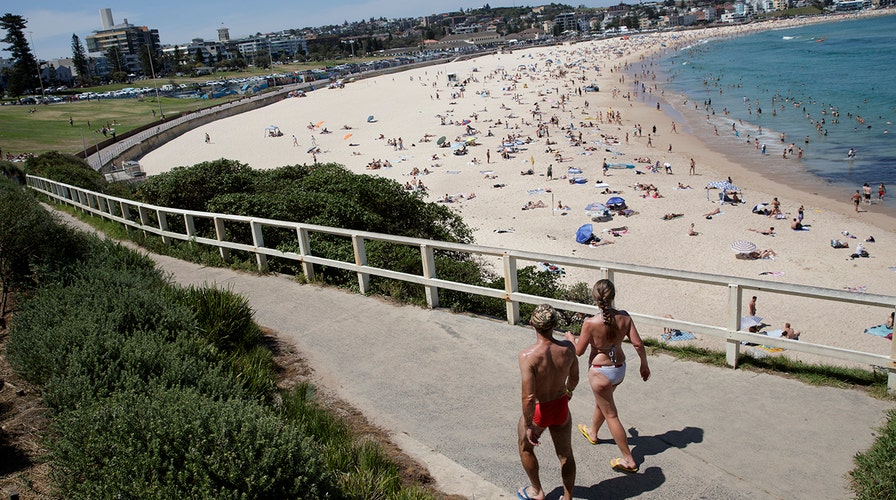Fox News Flash top headlines for November 28
Fox News Flash top headlines are here. Check out what's clicking on Foxnews.com.
Overnight temperatures in Australia’s biggest city were the hottest ever, with officials fearing that sweltering November heat could fuel dozens of existing wildfires.
Sydney recorded a minimum overnight temperature of 77.4 degrees just after 1 a.m. local time on Sunday – smashing a record that had stood since 1967.
The temperature at Sydney’s Observatory Hill reached 86 degrees shortly after 4:30 a.m.
REMARKABLE FIREBALL CAPTURED BREAKING UP ON FILM
Crowds flocked to Sydney beaches seeking relief from the heat. Officials reminded residents to follow social distancing regulations to prevent the spread of the coronavirus.

SYDNEY, AUSTRALIA - NOVEMBER 28: A general view as people gather at Bondi beach on November 28, 2020 in Sydney, Australia. The Bureau of Meteorology has forecast heatwave conditions in NSW this weekend, with temperatures expected to exceed 40 degrees across the state. (Photo by Brook Mitchell/Getty Images)
However, there was “sweet cool relief” after temperatures at Sydney’s airport dropped from 95 degrees to 78.8 degrees in about 20 minutes around 5:30 p.m., the Bureau of Meteorology tweeted Sunday.
Hotter weather is expected to return starting Tuesday, despite the official start of Australia’s summer still a few days away.
"November has been quite unusual in many ways. We have only seen about half our normal rainfall and it is quite possible it will be one of our hottest Novembers on record," Andrew Watkins, of the Bureau of Meteorology noted Friday.
The heat prompted the New South Wales Fire Service to issue a total fire ban for most of the eastern and northeastern parts of the state. Officials urged people to have fire plans ready.

SYDNEY, AUSTRALIA - NOVEMBER 29: Helicopters are seen water bombing an out of control bushfire at Northmead on November 29, 2020 in Sydney, Australia. The Bureau of Meteorology has forecast heatwave conditions in NSW this weekend, with temperatures expected to exceed 40 degrees across the state. (Photo by Jenny Evans/Getty Images)
This weekend saw the first significant bushfire activity since the end of the 2019-20 wildfire season, which charred some 24 million hectares of land, killing 33 people and destroying more than 3,000 homes.
The World Wide Fund for Nature (WWF) reported earlier this year that nearly 3 billion animals – including mammals, reptiles, birds and frogs – were killed or displaced during the fire season, which normally runs from July to March.
CLICK HERE TO GET THE FOX NEWS APP
At least three watch and act alerts were issued for fires in New South Wales on Sunday, as ground and air crews were battling fires across parts of the state. There were at least 61 wildfires burning across the state as of 5 p.m. local time.

